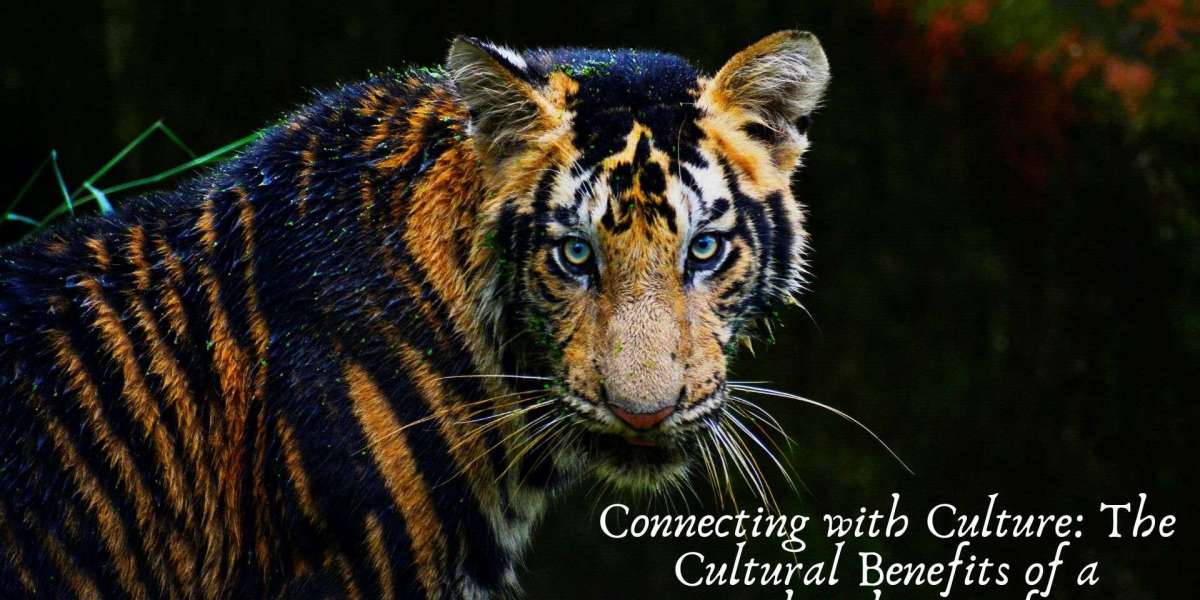Ranthambore Safari is renowned for its majestic tigers, diverse wildlife, and breathtaking landscapes. However, this destination offers more than just an encounter with nature; it is a gateway to exploring the rich cultural tapestry of Rajasthan. A Ranthambore Safari is not only a journey into the wild but also a deep dive into the vibrant traditions, history, and local customs that define this region. By connecting with the culture of Rajasthan through a safari, visitors gain a holistic understanding of the area, enriching their travel experience.
The Heritage of Ranthambore
Ranthambore is steeped in history, with its roots tracing back to the ancient Rajput kingdoms. The Ranthambore Fort, a UNESCO World Heritage site, is a testament to the area’s historical significance. This imposing fort, perched on a hilltop, offers panoramic views of the surrounding jungle and provides insight into the region’s storied past. Exploring the fort is not just a step back in time; it’s an opportunity to immerse oneself in the tales of valor, warfare, and architectural brilliance that shaped Rajasthan.
The fort’s intricate temples, palaces, and gates reveal the artistic and cultural heritage of the Rajputs. Visitors can witness the architectural grandeur that blends Hindu and Mughal styles, reflecting the confluence of cultures over centuries. The fort also serves as a symbol of the region’s resilience, having withstood numerous invasions and battles.
The Spirit of Rajasthan in Local Communities
A Ranthambore Safari is not complete without engaging with the local communities that live around the park. The villages surrounding Ranthambore are home to the Meena and Gujjar tribes, who have preserved their unique customs, traditions, and way of life for generations. By interacting with these communities, visitors can gain a deeper appreciation for Rajasthan’s cultural diversity.
The Meena tribe, one of the oldest indigenous groups in India, is known for its vibrant folk art, colorful attire, and traditional music. Visitors can witness traditional dance performances, where locals clad in bright costumes showcase their rich cultural heritage. Engaging with the Meena people offers insights into their age-old practices, such as farming and handicrafts, which are still an integral part of their daily lives.
The Gujjar community, traditionally pastoralists, also adds to the cultural mosaic of Ranthambore. Their unique lifestyle, centered around cattle rearing, provides a glimpse into the symbiotic relationship between humans and nature. Visitors can learn about their customs, participate in local festivals, and even taste traditional Rajasthani cuisine prepared by the locals.
Cultural Conservation and Eco-Tourism
Ranthambore Safari plays a crucial role in the conservation of both wildlife and cultural heritage. The park’s management and local communities work together to promote eco-tourism, ensuring that the cultural and natural resources are preserved for future generations. This collaborative effort highlights the importance of maintaining the cultural identity of the region while promoting sustainable tourism.
Visitors to Ranthambore can participate in eco-tourism initiatives that support local artisans and craftsmen. By purchasing locally made handicrafts, such as handwoven textiles, pottery, and jewelry, tourists contribute to the preservation of traditional arts and crafts. These initiatives not only provide economic support to local communities but also encourage the continuation of cultural practices that might otherwise be lost.
Festivals and Rituals: A Cultural Immersion
The cultural richness of Rajasthan is also evident in the festivals and rituals celebrated around Ranthambore. The vibrant festivals of Rajasthan, such as Diwali, Holi, and Teej, are celebrated with great fervor in the villages near the park. Visitors have the opportunity to partake in these celebrations, witnessing firsthand the traditional music, dance, and rituals that define Rajasthani culture.
During these festivals, the local communities come together to perform folk dances like Ghoomar and Kalbelia, accompanied by the melodious tunes of traditional instruments like the dholak and harmonium. These performances are not just entertainment; they are expressions of the community’s cultural identity and a way to pass down traditions to younger generations.
Participating in these festivals allows visitors to connect with the local culture on a deeper level, fostering a sense of belonging and appreciation for the region’s traditions. The rituals performed during these festivals, often centered around nature and wildlife, also underscore the deep spiritual connection that the people of Rajasthan have with their environment.
The Culinary Journey: Savoring Rajasthani Flavors
No cultural exploration is complete without experiencing the local cuisine. A Ranthambore Safari offers travelers the chance to indulge in authentic Rajasthani dishes, which are a reflection of the state’s rich culinary heritage. The cuisine of Rajasthan is known for its bold flavors, extensive use of spices, and dishes that have been perfected over centuries.
Visitors can savor traditional dishes such as Dal Baati Churma, a combination of lentils, wheat balls, and sweetened cereal; Laal Maas, a spicy red meat curry; and Gatte ki Sabzi, a dish made from gram flour dumplings in a tangy yogurt sauce. These dishes, often prepared by local chefs using traditional methods, provide a taste of Rajasthan’s culinary culture.
In addition to the food, visitors can also experience the traditional Rajasthani hospitality, known as "Padharo Mhare Desh" (Welcome to My Land). This hospitality, characterized by warmth and generosity, adds to the cultural immersion, making visitors feel like part of the local community.
Conclusion
A Ranthambore Safari is much more than a wildlife adventure; it is a journey into the heart of Rajasthan’s cultural heritage. From exploring ancient forts and engaging with local tribes to participating in vibrant festivals and savoring traditional cuisine, the cultural benefits of a Ranthambore Safari are vast and enriching. By connecting with the culture of the region, visitors not only enhance their travel experience but also contribute to the preservation of Rajasthan’s rich cultural legacy. Whether you are a history enthusiast, a cultural explorer, or simply a traveler seeking a deeper connection with the places you visit, Ranthambore Safari offers an unforgettable cultural experience that will leave a lasting impression.




